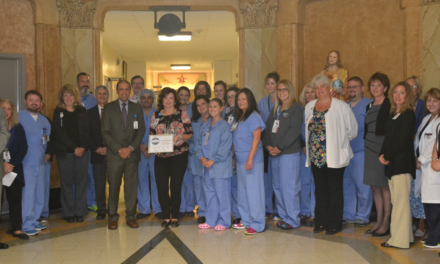Irritable bowel syndrome (IBS) is a common gastrointestinal disorder that affects 1 in 10 people worldwide. Symptoms frequently reported with IBS include abdominal discomfort and cramping, gas, bloating, constipation and/or diarrhea. While IBS is not a life-threatening condition, it can significantly impact a person’s quality of life.
How Your Mind Affects IBS
Though the exact cause of IBS is unknown, it is believed that when we are stressed our brain sends signals that make our digestive system more sensitive. IBS can happen at any age, but often begins during your teenage years or early adulthood, and affects more women than men.
While some research suggests that the condition is caused by stress and anxiety, the opposite is also true. IBS is known to cause stress and anxiety in those with the condition. The discomfort of IBS and worry over a possible flare-up when you are in social situations can take the fun out of activities you once enjoyed.
The mental toll IBS can take on people is serious. Individuals with IBS are more likely to suffer from depression, anxiety, and withdraw from social gatherings and experiences. Because of the stigma surrounding digestive issues, many people suffering from IBS do not seek help due to feeling embarrassed by their symptoms.
Types of IBS
There are four subtypes of IBS that are categorized by the appearance of your stool when you experience a flare-up. It is important your doctor knows what type of IBS you are experiencing, as certain treatments are used for specific types of IBS.
- IBS-C: Abdominal pain with constipation or stool that is hard to pass
- IBS-D: Abdominal pain with diarrhea
- IBS-M: Abdominal pain with a mix of diarrhea and hard or lumpy stool
- IBS-U: Undefined subtype as symptoms vary
In addition to stress and anxiety, IBS can be triggered by certain foods. If you aren’t sure what foods are causing your flare-ups, your doctor may recommend food journaling or keeping a diary to help you determine the root cause.
“While there is no current cure for IBS, the good news is, there are many ways to manage symptoms when you are experiencing a flare-up. Making dietary changes by avoiding foods that are known to exacerbate your symptoms and performing 30 minutes of exercise a day is a great first step. If your symptoms persist, your doctor can prescribe medications to target the pre-dominant symptoms such as diarrhea, constipation, or abdominal pain/spasms. Managing stress/anxiety with a therapist and lifestyle changes or via drug therapy can also help.”
Managing Your IBS
If you suffer from chronic stomach issues, don’t be afraid to discuss your symptoms with your doctor. The gastroenterology experts at Catholic Health use state-of-the-art technology and advanced techniques when diagnosing and treating conditions of the GI tract, like IBS. Our specialists take the time to listen to your concerns, and will provide you with a personalized treatment plan to relieve your symptoms and make your condition manageable.
With treatment, you can improve your quality of life and continue doing the activities you love. To schedule an appointment with one of our gastric specialists or to learn more about the gastroenterology services offered at Catholic Health, please call (716) 702-2112.





